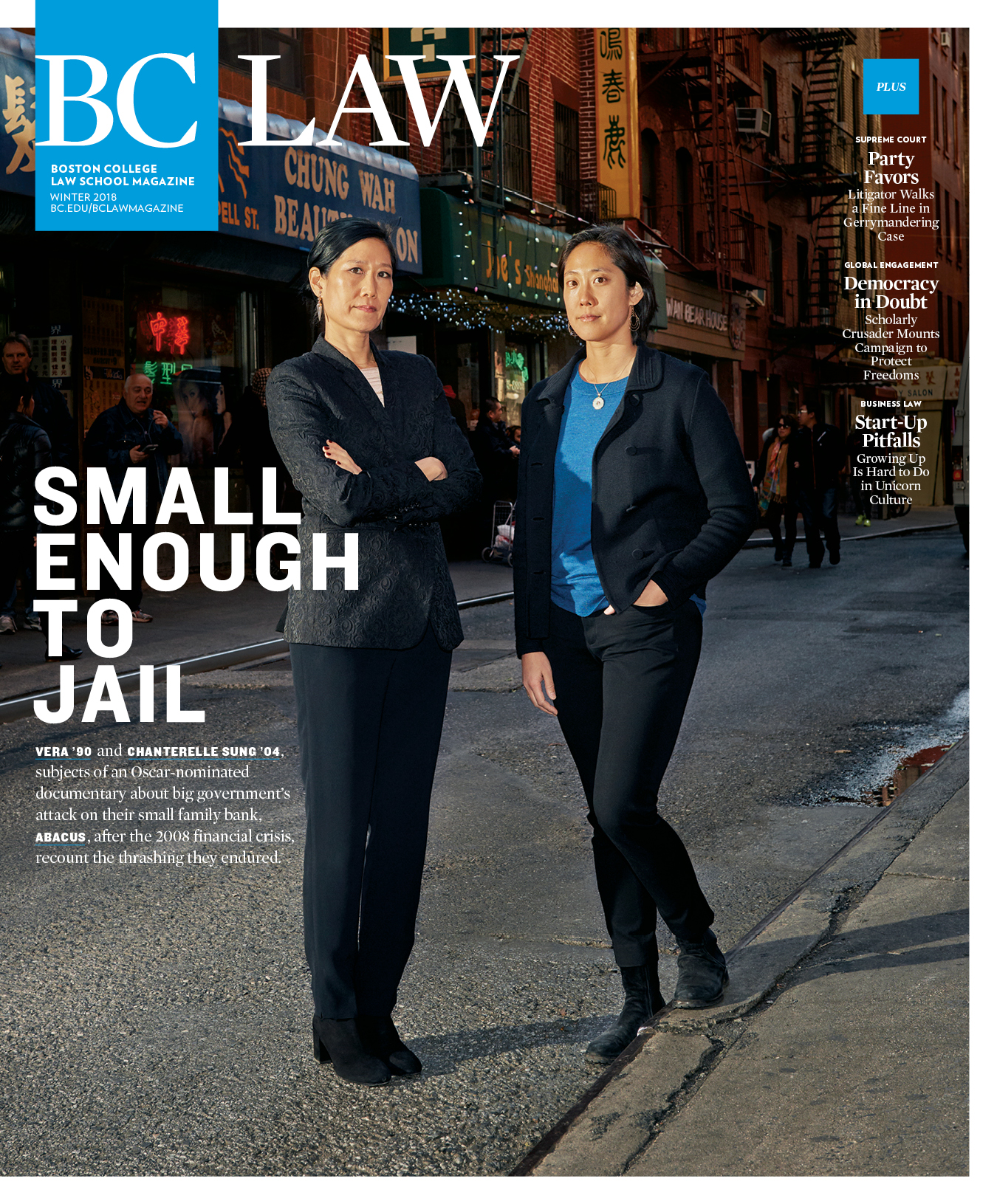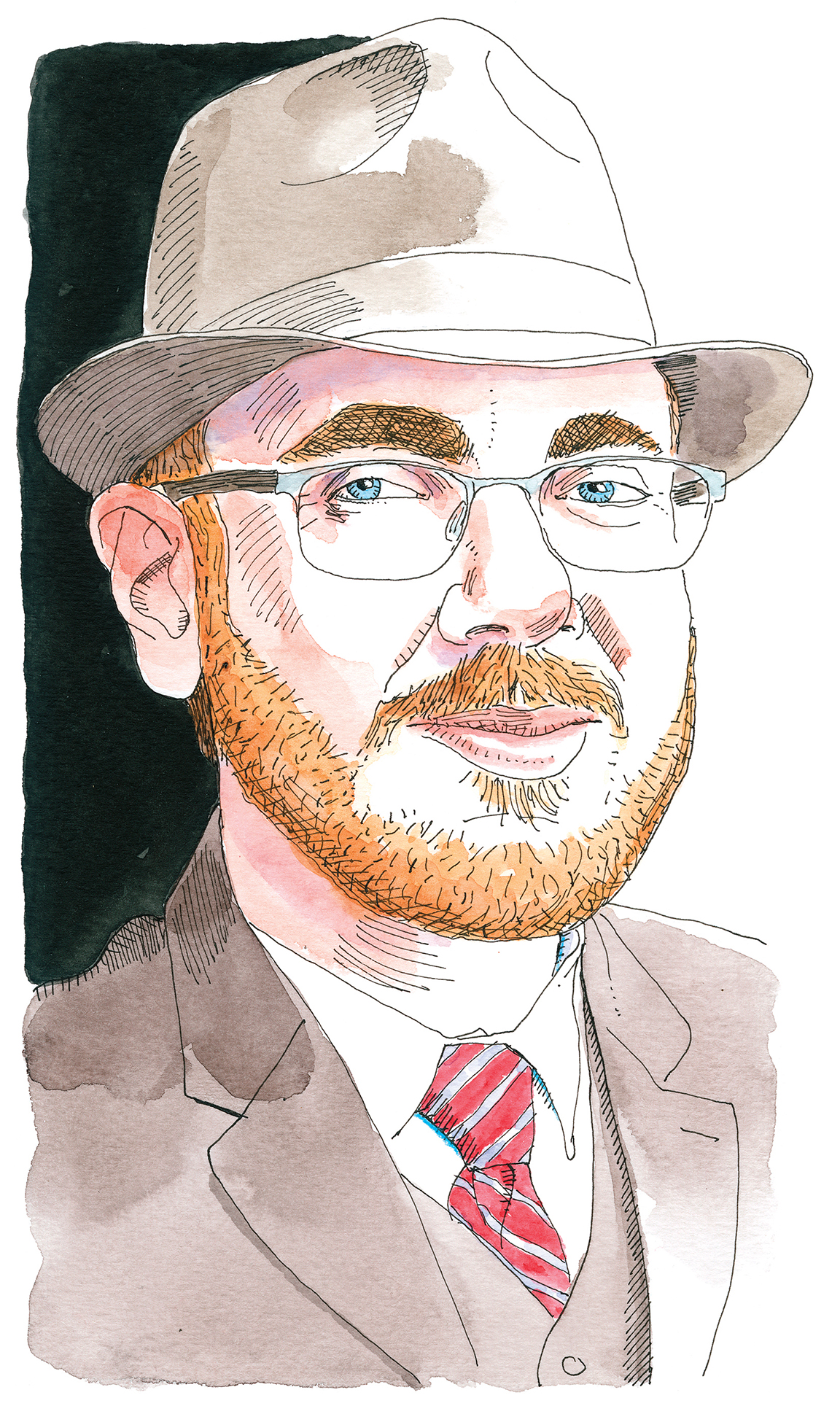Pocket Résumé
Degrees: AB and JD, both magna cum laude, Harvard University. Private Practice: Munger Tolles & Olson, and Gibson, Dunn, & Crutcher, Los Angeles; represented clients in proceedings before the FCC and California Public Utilities Commission. Clerkship: Judicial clerk, Ninth Circuit Court of Appeals. Writing: Articles in Emory Law Journal, Case Western Reserve Law Review, Wisconsin Law Review, and numerous others. Credentials: Visiting fellow, American Enterprise Institute. Free State Foundation, member of the board of academic advisors. Winner, Emil Slizewski Faculty Excellence Award, Boston College Law School.
The Idea: In urging the Federal Communications Commission to proscribe mobile phone plans that zero-rate some Internet content, net neutrality groups like Public Knowledge and Free Press do consumers a disservice, according to Professor Daniel Lyons, who has been writing law review articles on FCC rules for the Internet since the beginning of this decade. A judicious, case-by-case application of antitrust law, instead of sweeping rules against zero-rating plans, would protect consumers without burdening market innovation, Lyons says.
The Impact: The term net neutrality refers to the transmission speed of Internet content. Under FCC net neutrality rules established in 2015, and rescinded in December, Internet service providers (ISPs) could not favor or disfavor content by slowing, blocking, or accelerating it.
Zero-rating data plans give mobile and other Internet users access to selected content—Facebook, say, or local news—without its counting against their data cap. Subscribers to zero-rating plans also have full access to other web content. While they observe net neutrality, neither slowing nor accelerating content, zero-rating plans do favor some content in a way—by freeing it from data caps—and thus net neutrality advocates have never looked kindly on the plans.
A 2017 report by the European Commission Directorate General for Competition found that zero-rating serves some users’ specialized needs without noticeably harming other users. The 183-page report contains multiple citations to Daniel Lyons, along with multipage summaries of two articles by him.
The articles describe existing zero-rating plans and enumerate their benefits. In the US, for instance, an innovative T-Mobile plan offers zero-rated access to streaming music. The company, says Lyons, launched the plan after having “recognized that lots of consumers listen to music for many hours and were breaking through their data caps.” He adds that the plan has helped T-Mobile climb from fourth place to third among US mobile service providers, and its success has led T-Mobile to launch a similar plan with zero-rated video. The zero-rated plans have paved the way, says Lyons, for popular new unlimited plans offered by several mobile data providers, with no data caps whatever. Building on successes in this way is the path of innovation in the mobile data space, he adds.
Lyons, whose work was cited twice in the FCC order repealing net neutrality rules, isn’t fazed by concerns that the end of net neutrality means ISPs will favor certain content—creating “fast and slow lanes” for data and charging content providers to move their data faster—or may censor content.
Voice-plus plans take a leap beyond zero-rating and thus cause even more concern among net neutrality advocates. The plans, which feature uncapped access to selected websites but no access whatever to other sites, are popular in Europe and the developing world, but they clearly would have broken the FCC’s short-lived net neutrality rules. In 2014, before the rules were in place, Sprint announced the launch of a voice-plus plan for US consumers, with uncapped access to four social media sites. Lyons says he’d hoped to enroll his daughter. With web access on a home computer, she didn’t visit most websites on her mobile phone, but she often exceeded the family plan’s data cap owing to heavy Instagram use. Thus, a plan with uncapped access to Instagram would have suited her needs perfectly. To Lyons’ disappointment, though, Sprint quickly discontinued the plan, presumably because the company had seen the writing on the FCC’s wall—a loss for consumer choice, Lyons says.
While he thinks antitrust law suffices to police the market for mobile data plans, without any FCC intervention, Lyons sees little likelihood of antitrust violations in that market as currently configured. For one thing, to violate antitrust law, a business must first have “market power,” and today’s crowded market for mobile data assures that no provider does. (Thus, if a consumer doesn’t want a plan that offers only partial web access, she can easily get one with full web access.) To find a violation of antitrust law also requires a showing that consumers have been harmed, and “it’s hard to make the case that giving [Internet access] away is harming the consumer,” Lyons says.
Lyons, whose work was cited twice in the FCC order repealing net neutrality rules, isn’t fazed by the concerns of net neutrality groups—that the end of net neutrality means ISPs will favor certain content, creating “fast and slow lanes” for data and charging content providers to move their data faster; also that ISPs may censor content. He analogizes fast and slow data lanes to priority and first class mail. (“You buy the level of service you need,” he says, adding that congestion-sensitive applications, such as Netflix, may end up paying for priority delivery in the event of congestion.) As to censorship, he offers another analogy: “Broadband providers would say, ‘We’re not the government, so the First Amendment doesn’t apply.’ You can write a letter to the editor of the Boston Globe, but the Globe doesn’t have to publish it.”
Why don’t net neutrality groups see things his way? One theory is they are in the pocket of Internet content providers who fear that their content may someday be blocked or slowed—to favor an ISP’s own proprietary content.
“I’m not a follow-the-money guy,” Lyons says. “I like to take people at their word. Net neutrality advocates really don’t trust broadband providers and want an aggressive regulatory response. I’m more concerned that the FCC will do something that would hurt consumers.”



